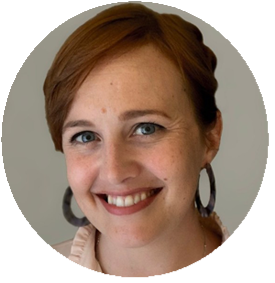Virginia’s John Marshall Center for Constitutional History and Civics

by Caroline Legros
It will likely come as no surprise to learn that the national state of civic understanding is on the decline, but the degree to which Americans struggle to understand basic functions of our government is, quite frankly, stunning. The 2023 Annenberg Constitution Day Civics Survey found that nearly 20 percent of respondents could not name even one branch of the United States (U.S.) government, and the majority struggled to recall more than one right protected by the First Amendment of the Constitution. Students are faring no better; the Nation’s Report Card NAEP Civics Assessment for 2022 found that student scores had dropped for the first time in two decades. Further, the American Bar Association’s 2023 Survey of Civic Literacy found that Americans also struggle to engage with each other in a productive manner. Their study reported that “85% of U.S. residents believe civility is worse compared to 10 years ago, and a majority believe social media and media are to blame” (American Bar Association, 2023, p. 1).
For those of us who work in the field of civics education, it’s important to see this data as an opportunity for change, rather than an insurmountable challenge. The John Marshall Center (JMC) for Constitutional History and Civics, now housed at the Virginia Museum of History and Culture, is focused on providing content that explores the intersections of our government, the judiciary, and the American citizenry. We deliver programs to audiences of all ages that demystify the processes that govern our society in the hopes of creating a more civically engaged citizenry. Our presentations run a wide gamut, content-wise—among our offerings are activities that highlight the basics of constitutional history, unpack the structure of the U.S. courts system, and detail how to participate in local government.
While many of our visits, both of-site and in the museum, target student audiences; we have found that by tweaking our approach just slightly, these programs can be just as effective for adult audiences. In fact, many adults are just as confused by the way our government functions as school-aged Americans might be. Often, they’re even more nervous and embarrassed than children are to ask for help in understanding how our government works.
One example of a program that we’ve adapted for adult use is “Building Bridges,” a workshop created with the Virginia Bar Association that uses legal mediation skills to help people better navigate difficult conversations. We piloted a version of the program with middle and high school groups but we found great success in adapting the materials for an adult audience. “Building Bridges” teaches individuals to implement particular communication techniques when they find themselves in an interpersonal conflict. During both adult and student presentations, our educators would introduce new communication skills, then allow the participants to practice those skills by acting as mediators with fictional scenarios. The program is intended to improve civil discourse, bridging the gap between a political divide that seems increasingly vast.
We adapted “Building Bridges” for adults in a few key ways. First, our educators were able to discuss mediation skills in more depth and complexity with adult learners. The average adult has experienced more types of relationships than has the average student—an adult is more likely than an 8th grader to have been a parent, an employee, a spouse, a business owner, and so on. As a result, our educators could ask adult participants to draw on those life experiences when they were demonstrating how to de-escalate conflict between individuals.
We also were able to cover topics that were more politically heated with our adult learners. We often steer clear of hot-button issues with our younger audiences, but weren’t afraid to get adults talking about weighty subjects. We wanted to encourage dialogue and debate with the adults, and talking about contentious issues always generates lively conversation. Once people began arguing about a particular issue, we were able to shift the program’s focus to how that conversation could be improved by implementing our mediation skills.
Finally, we realized that a successful programmatic outcome would look different depending on our audience. The type of engagement we expected from students wouldn’t be typical for adults. Unlike their school-aged counterparts, adults are less likely to speak up in a group setting and are more hesitant before participating in an activity. Our educators couldn’t expect a group of adults to get as excited to participate in a game of “rock, paper, scissors” as a gaggle of 12-year-olds might—that type of energetic participation just isn’t a typical response from adult audiences. To that end, we restructured many of the “Building Bridges” activities to better facilitate adult interactions. For example, the group discussions were done in smaller groups and we added more written prompts to help adults organize their thoughts before sharing them aloud.
Although many of the John Marshall Center’s resources were originally built for student audiences, a few small adaptations are all that’s needed to deliver these programs for adult groups. Our team is always happy to adjust a program for adult audiences, so we encourage you to reach out to us for ways to bring civics education and constitutional history to your adult learners. The best way to connect with us is by visiting our website, www.virginiahistory.org/civics. Here, you can explore our repository of resources for educators, learn about our attorney/judge classroom visits, and view items from the John Marshall Collection. You can even put your own civic knowledge to the test! One part of the JMC website that may be of most interest to adult learners is our archive of Pop Civ posts—these articles investigate the intersection of pop culture and constitutional history. The articles are for readers of all ages and should inspire dialogue about current issues being debated by Americans. We hope all of the JMC resources help you navigate the challenging landscape of civic education and we welcome the opportunity to help you in your work with adults.
References
American Bar Association. (2023). 2023 ABA survey of civic literacy. https://www.americanbar.org/content/ dam/aba/administrative/news/2023/2023-civic-literacy-survey.pdf
Annenberg Public Policy Center. (2023, September 14). Many don’t know key facts about U.S. constitution, Annenberg civics study finds. University of Pennsylvania. https://www.annenbergpublicpolicycenter.org/many-dont-know-key-facts-about-u-s-constitution-annenberg-civics-study-fnds/
National Assessment of Educational Progress (NAEP). (2022). NAEP report card: 2022 NAEP civics assessment. The Nation’s Report Card. Retrieved December 18, 2023, from https://www.nationsreportcard.gov/highlights/civics/2022/
 Caroline Legros is the Manager of Civics Programs at the John Marshall Center (JMC) for Constitutional History and Civics at the VMHC, where she creates content for audiences of all ages that explores the intersection of civics and history. Caroline has more than 20 years of experience in museum education, designing lesson plans, curating exhibitions, and working closely with classroom educators. Before joining the JMC, Caroline was the Education Coordinator at the Institute for Contemporary Art at Virginia Commonwealth University (VCU) from 2018 to 2019 and the School Program Coordinator at the Virginia Museum of History and Culture from 2009 to 2017. Caroline holds a bachelor of arts degree in French language and literature from VCU.
Caroline Legros is the Manager of Civics Programs at the John Marshall Center (JMC) for Constitutional History and Civics at the VMHC, where she creates content for audiences of all ages that explores the intersection of civics and history. Caroline has more than 20 years of experience in museum education, designing lesson plans, curating exhibitions, and working closely with classroom educators. Before joining the JMC, Caroline was the Education Coordinator at the Institute for Contemporary Art at Virginia Commonwealth University (VCU) from 2018 to 2019 and the School Program Coordinator at the Virginia Museum of History and Culture from 2009 to 2017. Caroline holds a bachelor of arts degree in French language and literature from VCU.